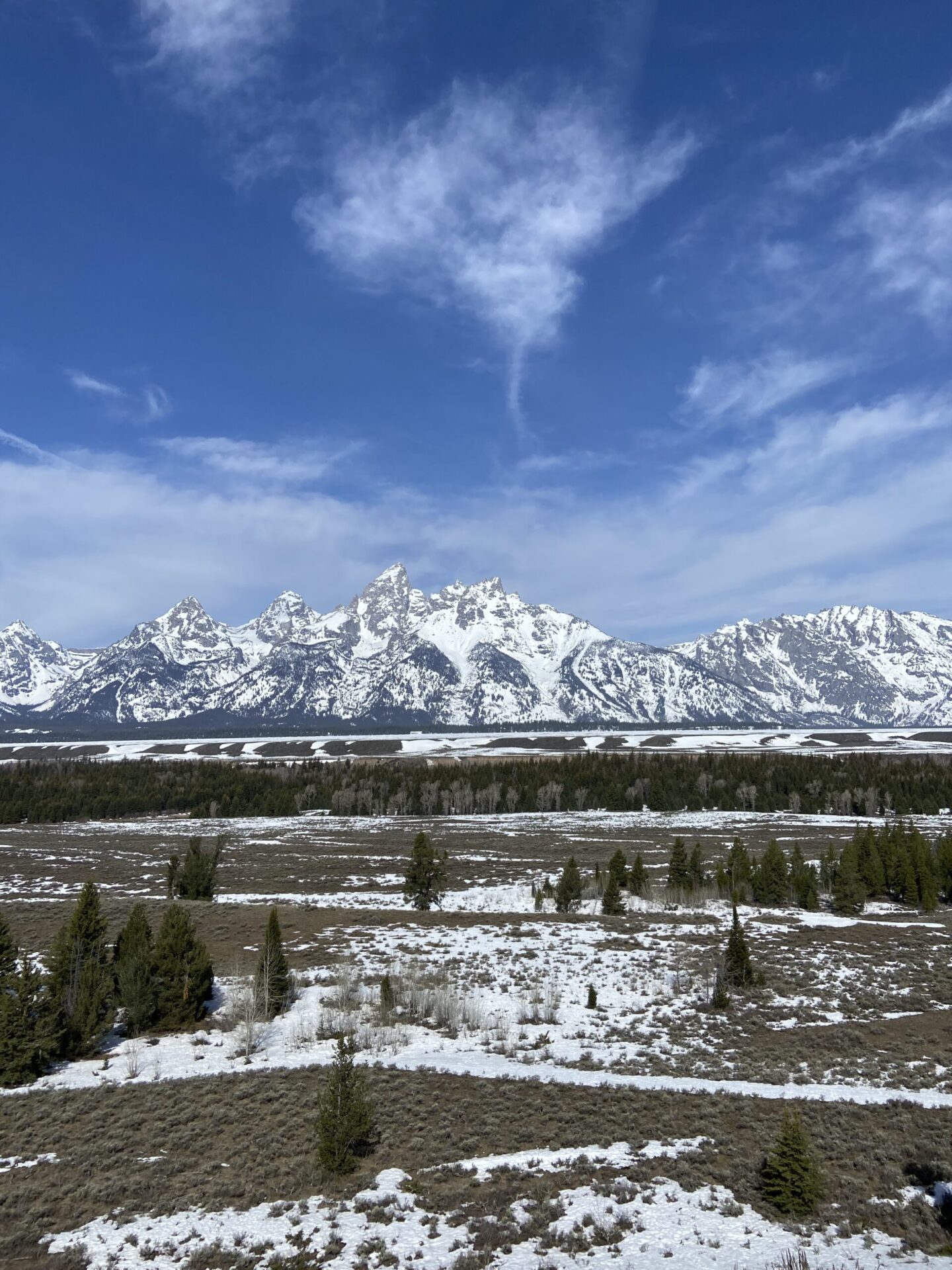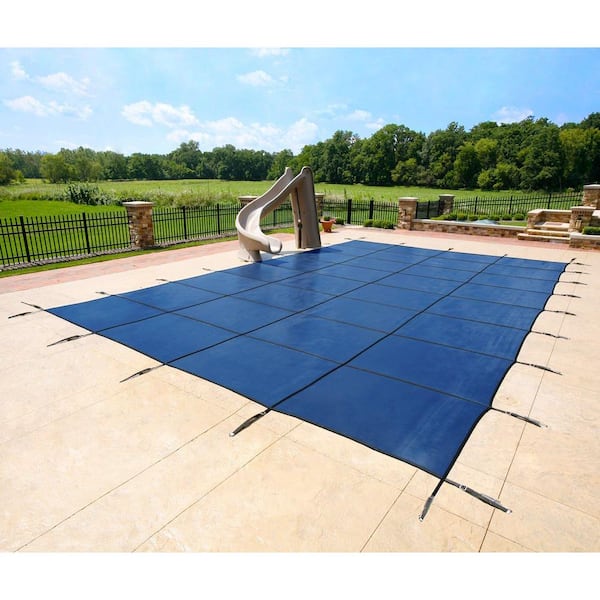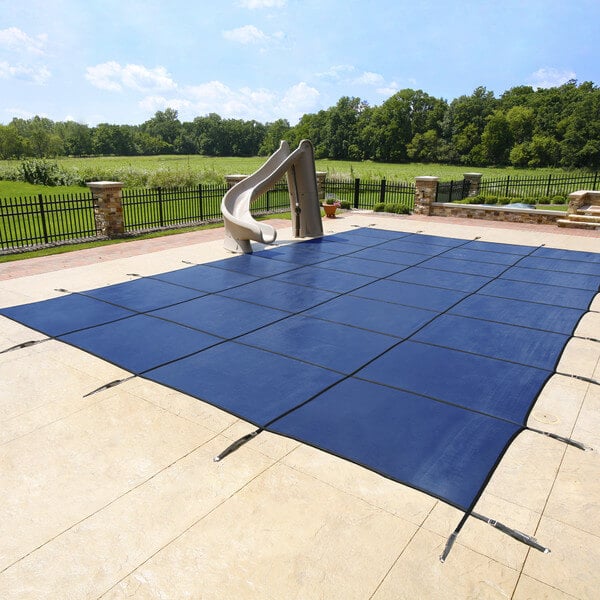Did you know that properly winterizing your above ground pool can help extend its lifespan and save you money on repairs? In this article, we will provide you with thorough and knowledgeable maintenance tips to ensure your pool survives the harsh winter months. From essential equipment to preparing the water and cleaning accessories, we’ve got you covered. Learn how to secure and protect the pool structure while performing regular maintenance during winter. Get ready to enjoy a stress-free pool opening next summer!
Key Takeaways
- Essential equipment and preparation for winterizing an above ground pool include a sturdy pool cover, winter chemicals for water maintenance, skimmer plate or plug, and a winterizing kit with plugs for sealing plumbing system openings.
- Cleaning and storing pool accessories involves removing debris from the pool cover, rinsing and drying the cover, cleaning pool toys with warm water and mild soap, and storing accessories in a cool, dry place.
- Securing and protecting the pool structure requires installing a sturdy pool cover, properly securing it with ropes or cables, clearing off accumulated snow, inspecting and maintaining the pool structure for damage, and addressing any issues promptly.
- Regular maintenance during the winter months involves checking and maintaining the pool, inspecting the pool cover for damage, monitoring water level and adding necessary chemicals, clearing debris from the cover and skimmer opening, and checking for signs of leaks or damage to the pool structure.
Essential Equipment for Winterizing
Before you start winterizing your above ground pool, make sure you have all the essential equipment on hand. The first item you will need is a sturdy and reliable pool cover. A pool cover is a crucial component of winterizing your pool as it helps to keep out debris such as leaves, twigs, and insects. It also prevents water evaporation and keeps the pool water clean during the winter months. When choosing a pool cover, opt for one that is specifically designed for above ground pools to ensure a proper fit.
Another important piece of equipment you will need are winter chemicals. These chemicals are specially formulated to maintain your pool’s water quality throughout the colder months. They help prevent algae growth, inhibit bacteria growth, and protect against staining or damage caused by freezing temperatures. Look for a winter chemical kit that includes algaecide, enzyme treatment, and stain prevention products. Follow the manufacturer’s instructions carefully when adding these chemicals to your pool.
In addition to the pool cover and winter chemicals, there are a few other items you should have on hand for effective winterization. A skimmer plate or plug will be needed to seal off the skimmer opening once it has been cleaned and drained. This prevents any water from entering the skimmer system during freezing temperatures.
A winterizing kit typically consists of plugs or gizmos that are used to seal off various openings in your pool’s plumbing system such as return jets and inlet fittings. These plugs prevent water from getting into these areas during freezing weather conditions.
Lastly, having an air pillow is highly recommended when closing an above ground pool for the winter season. Placing an air pillow in the center of your covered pool helps distribute rainwater or snow away from its surface keeping excess weight off of it which could lead to damage.
Preparing the Water for Winter
To prepare the water for winter, you’ll need to balance the chemicals and remove any debris. Before starting the draining process, it is crucial to ensure that your pool’s chemical levels are properly balanced. This will help protect your pool during the colder months and prevent any damage or buildup of algae. Begin by testing the water using a reliable pool testing kit. Adjust the pH level to between 7.2 and 7.6, as this range is optimal for winter chemical treatment.
Next, focus on removing any debris from the water. Use a skimmer net or vacuum to get rid of leaves, twigs, and other unwanted particles floating in your pool. It’s essential to have clean water before proceeding with further maintenance steps.
After balancing the chemicals and removing debris, it’s time to drain some of the water from your above ground pool. You don’t need to completely empty it; just lower the water level below all return jets and skimmer openings. This prevents freezing water from causing any damage.
Once you’ve drained enough water from your pool, it’s time for winter chemical treatment. Add an appropriate amount of winterizing chemicals according to your pool size and manufacturer instructions. These chemicals will help maintain proper pH levels throughout winter storage.
In conclusion, preparing your above ground pool for winter requires careful attention to balancing chemicals, removing debris, draining some of the water, and applying appropriate winterizing chemicals for protection during storage.
Now that you’ve prepared your pool for winter maintenance let’s move on to cleaning and storing pool accessories
Cleaning and Storing Pool Accessories
Now, it’s time to clean and store your pool accessories for the winter season. Proper maintenance of your pool cover and winterizing your pool toys will ensure they stay in good condition and are ready to use when summer comes around again.
To start, take a close look at your pool cover. Remove any debris such as leaves or twigs that may have accumulated on top of it. Use a hose to thoroughly rinse the cover, removing any dirt or grime that may have settled on its surface. Make sure the cover is completely dry before folding and storing it away. This will help prevent mold or mildew from forming during the winter months.
Next, let’s focus on winterizing your pool toys. Begin by giving them a thorough cleaning with warm water and mild soap. Scrub off any dirt or residue that may be stuck to them using a soft brush or sponge. Rinse them well to make sure all soap is removed.
Once clean, allow the toys to air dry completely before packing them away in a storage bin or bag specifically designed for this purpose. It’s important to keep them in a cool, dry place where they won’t be exposed to extreme temperatures or moisture.
By properly maintaining your pool cover and winterizing your pool toys, you’ll extend their lifespan and ensure they’re ready for use when summer returns.
Now that you’ve taken care of cleaning and storing your pool accessories, it’s time to move on to securing and protecting the pool structure itself during the winter months.
Securing and Protecting the Pool Structure
Securing and protecting the pool structure is essential for keeping it safe during the winter months. Winter maintenance is crucial to ensure that your pool remains in good condition and ready for use when warmer weather returns. Here are some important tips to help you properly secure and protect your pool:
- Install a sturdy pool cover: A high-quality pool cover is an absolute must for winterizing your pool. It provides protection against debris, prevents evaporation, and keeps the water clean. Make sure to choose a cover specifically designed for your type of pool.
- Secure the cover properly: Ensure that the pool cover is securely fastened to prevent it from being blown away by strong winds or heavy snowfall. Use strong ropes or cables along with tightening devices to keep the cover in place.
- Clear off accumulated snow: Regularly remove any snow accumulation from the top of the pool cover to prevent excess weight that could cause damage. Use a broom or snow brush instead of sharp tools that could puncture or tear the cover.
- Inspect and maintain the structure: Take this opportunity to inspect your pool’s structure for any signs of damage, such as cracks or leaks. Address these issues promptly before they worsen during winter conditions.
Regular Maintenance During the Winter Months
Regularly checking and maintaining your pool during the winter months is crucial to prevent any potential issues from arising. By taking the necessary steps, such as using winterizing chemicals and preventing freeze damage, you can ensure that your pool stays in good condition until summer comes around again.
One important aspect of winter maintenance is the use of winterizing chemicals. These chemicals help to keep your pool water clean and clear, even during the colder months. It’s essential to follow the manufacturer’s instructions on how to properly add these chemicals to your pool. This will not only maintain water quality but also prevent the growth of algae or bacteria.
Another key factor in winter pool maintenance is preventing freeze damage. Freezing temperatures can cause significant damage to both above-ground and in-ground pools if not properly addressed. To prevent freeze damage, make sure to drain all water from the plumbing lines and equipment before freezing temperatures arrive. Additionally, consider using a pool cover specifically designed for winter use. A high-quality cover will provide added protection against freezing conditions.
Throughout the winter months, it’s important to regularly check on your pool’s condition. Remove any debris that may have accumulated on top of the cover and inspect it for any signs of wear or tear. Additionally, check for leaks or cracks in the pool structure itself.
Frequently Asked Questions
How Can I Safely Remove Ice From the Pool Cover During the Winter Months?
To safely remove ice from your pool cover during winter, there are a few methods you can try. The safest method is to let the ice melt naturally without attempting to remove it physically. This prevents any damage to the cover or pool. However, if you need to speed up the process, you can use alternative options such as gently brushing off loose ice or using warm water to melt it. Just be careful not to damage the cover in the process.
Should I Drain the Pool Completely Before Winterizing It?
Before winterizing your above ground pool, you may wonder if draining it completely is necessary. While the decision ultimately depends on various factors such as climate and pool type, draining the pool partially is often recommended. This helps prevent potential damage from freezing and expanding water during winter months. However, it’s crucial to consult the manufacturer’s guidelines and consider seeking professional advice to ensure a proper winterizing process for your specific pool.
Can I Use Regular Household Cleaning Products to Clean My Pool Accessories Before Storing Them?
Yes, you can use regular household cleaning products to clean your pool accessories before storing them. However, it is recommended to use professional cleaning products specifically designed for pool maintenance. These products are formulated to effectively remove dirt, debris, and bacteria from your pool accessories, ensuring they are thoroughly cleaned and ready for storage. Using alternative cleaning products may not provide the same level of cleanliness and could potentially leave behind residue or damage the materials of your accessories in the long run.
Are There Any Specific Steps I Need to Take to Protect the Pool Liner During the Winter?
To keep your pool liner safe during the winter, there are a few important steps you need to take. First, make sure the water level is lowered below the skimmer and return jets. Then, thoroughly clean and dry the liner before covering it with a winter pool cover. This will protect it from debris and harsh weather conditions. Finally, regularly check for any signs of damage or leaks throughout the winter season to ensure your pool liner stays in great shape.
How Often Should I Check the Pool Water Chemistry During the Winter Months?
During the winter months, it is important to regularly check the pool water chemistry to ensure that it remains balanced and safe. Maintaining proper pool chemicals is crucial for preventing algae growth and other issues that could damage your pool. By checking the water chemistry at least once a week, you can make any necessary adjustments to keep your pool in optimal condition throughout the winter season. Don’t neglect this step as it will save you time and money in the long run.
Conclusion
In conclusion, winterizing your above ground pool is essential for its longevity and to ensure a hassle-free reopening in the spring. By following the maintenance tips outlined in this article, you can protect your pool equipment, prepare the water properly, clean and store accessories, and secure the pool structure effectively. Remember, “an ounce of prevention is worth a pound of cure.” So take the time to give your pool the attention it needs during the winter months to avoid costly repairs or replacements down the road.








